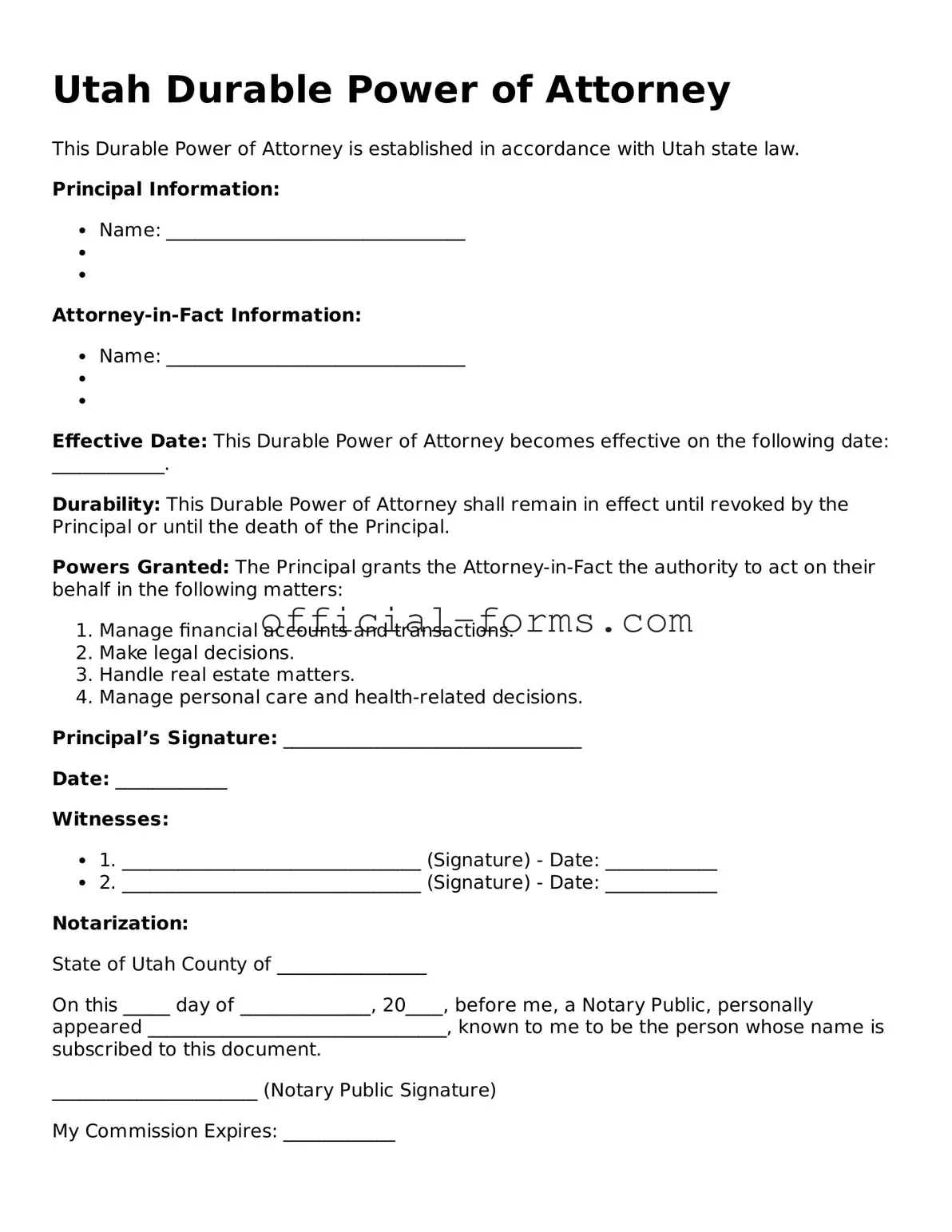Official Utah Durable Power of Attorney Document
A Durable Power of Attorney in Utah is a legal document that allows an individual to appoint someone else to make decisions on their behalf, particularly in financial or medical matters, should they become incapacitated. This form ensures that the designated agent can act without the need for court intervention, providing peace of mind during challenging times. Understanding its provisions and implications is essential for effective estate planning in Utah.
Open My Durable Power of Attorney Now

Official Utah Durable Power of Attorney Document
Open My Durable Power of Attorney Now
Don’t leave your form incomplete
Finish Durable Power of Attorney online quickly from start to download.
Open My Durable Power of Attorney Now
or
➤ PDF
